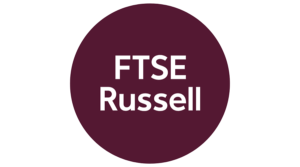Environmental, Social, and Governance (ESG) rating agencies have played a significant role in investment managers asset allocation strategies.
As investors increasingly prioritize sustainable and socially responsible investing practices, ESG ratings have become a crucial tool for assessing the performance and impact of companies.
ESG rating agencies play a pivotal role in this process by evaluating and providing ratings based on various environmental, social and governance factors.
However, ESG has been heavily criticized in recent years, as ESG decision making processes are often swayed by political interests.
Nonetheless, ESG and sustainable investments are here to stay and will continue to play an integral role in the investment world.
In this article, we will explore the 10 Best ESG rating agencies, highlighting their strengths and weaknesses to help investors make informed decisions.
Best ESG Rating Agencies
- MSCI ESG Ratings
- Sustainalytics
- Institutional Shareholder Services (ISS) ESG
- CDP (formerly Carbon Disclosure Project)
- FTSE Russell
- RobecoSAM
- S&P Global Ratings
- Moody’s ESG Solutions
- Thomson Reuters ESG Research
- Refinitiv ESG Scores
1. MSCI ESG Ratings

MSCI ESG Research is a leading provider of ESG ratings, covering over 14,000 companies worldwide.
Their research methodology integrates both qualitative and quantitative data, allowing investors to gauge a company’s sustainability performance comprehensively.
MSCI’s global coverage and robust research process are some of its significant advantages.
However, critics argue that their methodology may not capture all material ESG risks, potentially leading to incomplete ratings.
2. Sustainalytics

Sustainalytics (A Morningstar Company) is a well-established ESG rating agency known for its rigorous analysis and vast coverage of ESG issues.
Their ratings consider a range of ESG factors, including controversies and industry-specific risks.
Sustainalytics also provides research and consulting services to help companies improve their sustainability practices.
However, some critics point out that their rating methodology can be complex and occasionally lacks transparency.
3. Institutional Shareholder Services ESG Solutions

Institutional Shareholder Services (ISS) ESG is widely recognized for its robust and comprehensive ESG research.
They provide ratings and research across multiple domains, including climate change, board structure, and human rights.
ISS ESG’s integration of proxy voting and engagement services with ESG analysis sets them apart.
Nonetheless, some investors find their reports overly detailed, which may hinder accessibility for certain users.
4. CDP ESG

CDP (formerly Carbon Disclosure Project) is a global nonprofit organization focused on environmental reporting.
Their ESG ratings primarily revolve around climate change, water security, and deforestation.
CDP’s strength lies in the extensive disclosure data they collect from companies, providing investors with valuable insights.
However, their narrower focus on environmental aspects may limit their overall ESG assessment.
5. FTSE Russell

FTSE Russell offers a range of ESG indices and ratings, enabling investors to track and assess sustainable investments across a broad spectrum of sectors.
Their ratings consider various ESG factors, including climate change, human rights, and corporate governance.
FTSE Russell’s indices are widely used as benchmarks for sustainable investing.
One drawback, however, is that their ratings can be influenced by the constituents of their indices.
6. RobecoSAM
![]()
RobecoSAM specializes in sustainable investing and provides ESG ratings through its proprietary Corporate Sustainability Assessment (CSA).
They focus on evaluating companies’ sustainability practices and identifying industry leaders.
RobecoSAM’s CSA methodology is widely regarded for its depth and comprehensive evaluation process.
Nevertheless, the exclusivity of their assessment process limits coverage to a select group of companies.
7. S&P Global Ratings

S&P Global Ratings ESG Scores can cover a wide range of corporate entities, banks, insurers, and public finance companies.
Their ratings leverage data from multiple sources to provide a holistic view of a company’s ESG performance.
The strength of S&P Global Ratings lies in their credibility and long-standing reputation in the financial industry.
However, some critics argue that their ESG Scores may not capture nuanced sustainability practices or adequately consider the long-term impact of a company’s operations (I.e. Scope 3 Emissions).
8. Moody’s ESG Solutions
![]()
Moody’s ESG Solutions provides ESG ratings and assessments, focusing on environmental and social risks.
They offer a comprehensive suite of ESG products, including data, research, and analytics.
Moody’s ESG ratings consider a wide range of factors, such as climate change, resource efficiency, labor standards, corporate governance, and community relations.
However, their relative newcomer status in the ESG rating space may raise questions about their methodology’s maturity and industry acceptance.
9. Thomson Reuters ESG Research
![]()
Thomson Reuters ESG Research provides ESG ratings and data on companies worldwide.
Their ratings cover multiple ESG dimensions, including climate change, human rights, and diversity & inclusion.
Thomson Reuters ESG Research also offers thematic research and industry-specific insights.
However, some investors find their ratings less comprehensive compared to other leading agencies.
10. Refinitiv ESG Scores

Refinitiv, a subsidiary of London Stock Exchange Group, offers ESG data and scoring through its ESG database.
Refinitiv’s ESG Scores evaluate companies based on various ESG factors, including climate change, human rights, and corporate governance.
Their scores provide a comprehensive assessment of a company’s sustainability performance, enabling investors to compare and benchmark companies across industries.
Refinitiv’s access to extensive data sources is one of its notable strengths.
However, like other data-driven ESG rating providers, their methodology may face limitations in capturing qualitative and contextual information.
Frequently Asked Questions (FAQs)
Who is leading ESG rating?
The biggest ESG rating providers are Sustainalytics and MSCI.
How many ESG rating providers are there?
There are more than a dozen ESG rating agencies in the world. However, the major ESG rating agencies are Sustainalytics, MSCI, ISS, and FTSE Russell, and S&P Global Ratings.
How do I find a company’s ESG score?
You can find a company’s ESG score by searching through leading ESG rating agencies like Sustainalytics or MSCI.
Who is the largest ESG manager?
The largest ESG asset manager in the world is BlackRock. BlackRock predicts that ESG assets will reach $53 trillion by 2025, representing a third of global assets under management (AUM).









